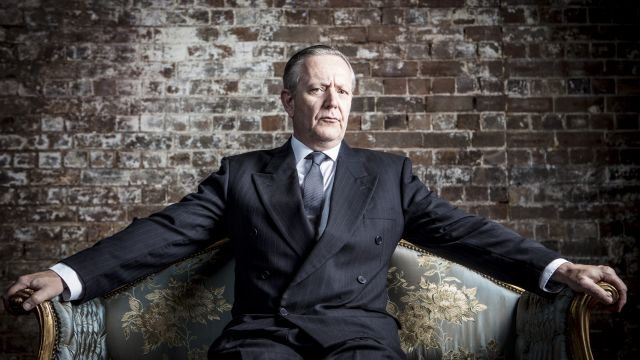The Gospel According to Paul
‘Paul’ is of course Paul Keating, and this is Jonathan Biggins’ impression of our former reforming Treasurer (1983-91) and our 24th Prime Minister (1991-96). Mr Biggins doesn’t so much impersonate Paul Keating as represent him in all his complexity. The voice and the walk aren’t exactly right, but we recognise both. You wouldn’t describe this show as hagiography, but it’s clear that Mr Biggins admires and even loves his subject. Probably indebted to Kerry O’Brien’s extensive 2013 interviews, and subsequent book, the show is a narrative – with frequent asides – from schooldays, first job, and through to parliamentary triumphs and defeat. There’s no mention of Keating’s very ‘narrow minded’ (traditional Catholic) views on women and homosexuality when he entered parliament at twenty-five, but while reference to that would be accurate, it’s not part of the ‘big picture’ Mr Biggins wants to paint. With every one of Keating’s pungent putdowns or his extravagant claims – such as that he made modern Australia – there’s a pause and a challenging look to the audience. ‘Well, I’m right, aren’t I?’

Just take a look at the macro and micro achievements of the Hawke-Keating governments, or Keating’s courage to make the Redfern speech, or to fight for the Native Title Act. Superannuation? The Prices and Income Accord? Well… Is he wrong to boast and demand his due? Isn’t he entitled to break into a song and dance number – which he does?
The audience hangs on every word, as if we can’t get enough of him. There could easily be murmurs of dissent or protest from the full house audience, but there are none – or they are stifled. Most of us know exactly why we’re there. We laugh out loud. Often. And we remember. He’s still the boy from Bankstown who left school at fourteen and the man in the Zegna suit who collects 18th century French clocks and thinks with Mahler blasting from the speakers – and most likely the best parliamentary performer of the 20th century. The quotes are famous. He says he doesn’t do impressions, but his Jack Lang is spot on. His iconoclastic description of Hawke’s character makes us gasp. Still a bloke, he refers to his (fictitious?) producer as ‘sweetheart’. He’s funny, vainglorious, regretful (not often), fair, unfair, vicious, insightful, offensive and an idealistic realist. At the end – well, on the way through - most of us are wishing there were or could be more like him. Which is a point he makes himself, of course. He knows what a leader is – he states definitely that he was one – and he points to his less than charismatic successors and dares you to contradict.

Mark Thompson’s design put us in a sort of representation of the Potts Point study – red walls, classical art, and antiques. Interestingly, in the course of the show, Keating says yeah, he knows this stuff is the past, but what he did in politics was always to think of the future. We get a sort of a slide show (design by David Bergman) of the shaping figures that made him – and his opponents and contemporaries. I don’t know how much direction Jonathan Biggins needs, but director Aarne Neeme makes sure things never get static and that movement is in keeping with what’s being said. The long pauses, with Keating half turned away when he speaks of the death of his father and obliquely later of the breakdown of his marriage, are suddenly particularly moving. This show is not all jokes and boasting.
When I say ‘we’ as if audience response was universal, that’s not strictly accurate. Some, I think, remain coolly objective (full of himself, wrecked Australian manufacturing, ‘banana republic’, interest rates at 18%, etc, etc) and at the end, after he’s told us we can all bugger off now, some younger folks, not even alive in 1996 (when Keating lost in a landslide), look bemused. Two rows ahead of The Companion and me, two twenty-something young women, maybe dragged there by Mum and Dad for some hero worship, have that look of ‘Sorry, I don’t get it.’ Dad, still smiling with a nostalgic glow, explains, ‘It’s a generation thing.’ And he’s probably right. You really had to be there. But if you were, and you remember, this show is more than a reminder, more than nostalgia, more than a brilliantly performed and sustained tribute; it’s a hugely entertaining, provocative, moving and very funny one-man show.
Michael Brindley
Photographer: Brett Boardman
Subscribe to our E-Newsletter, buy our latest print edition or find a Performing Arts book at Book Nook.

